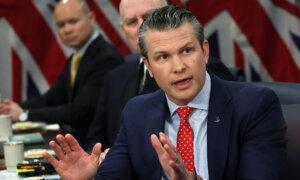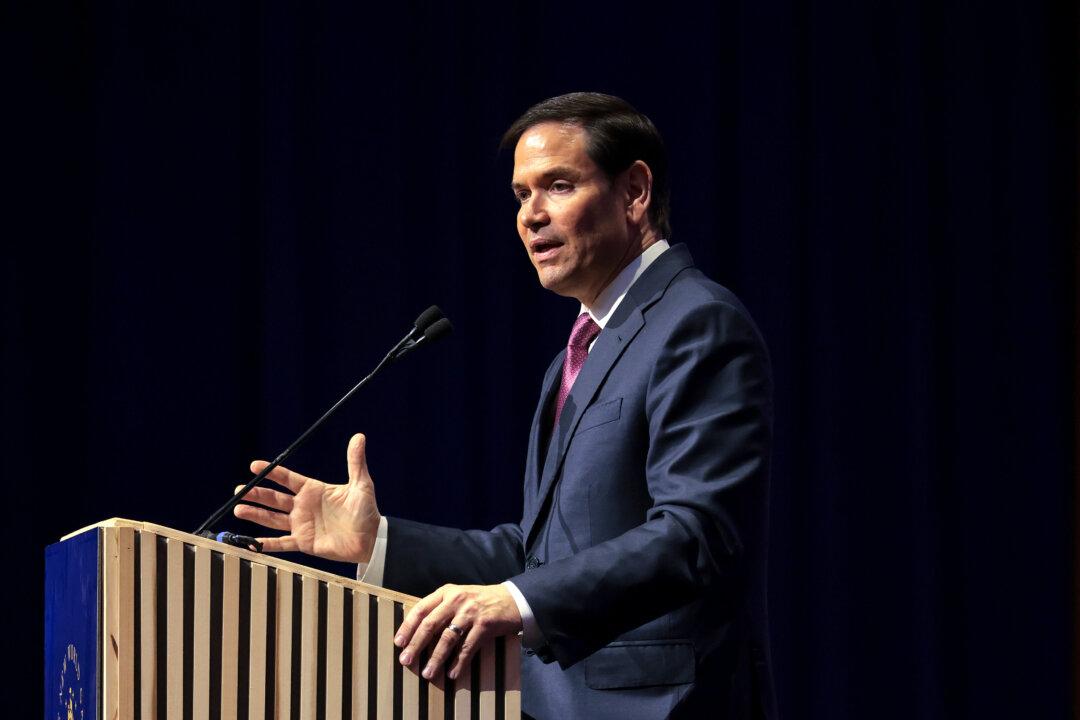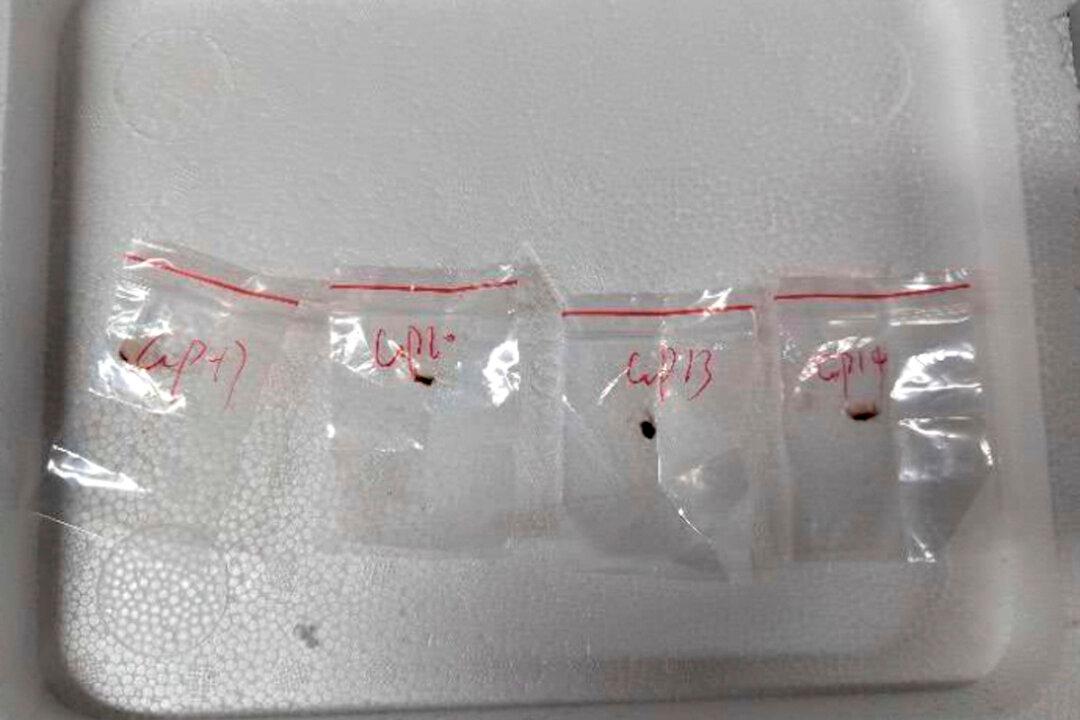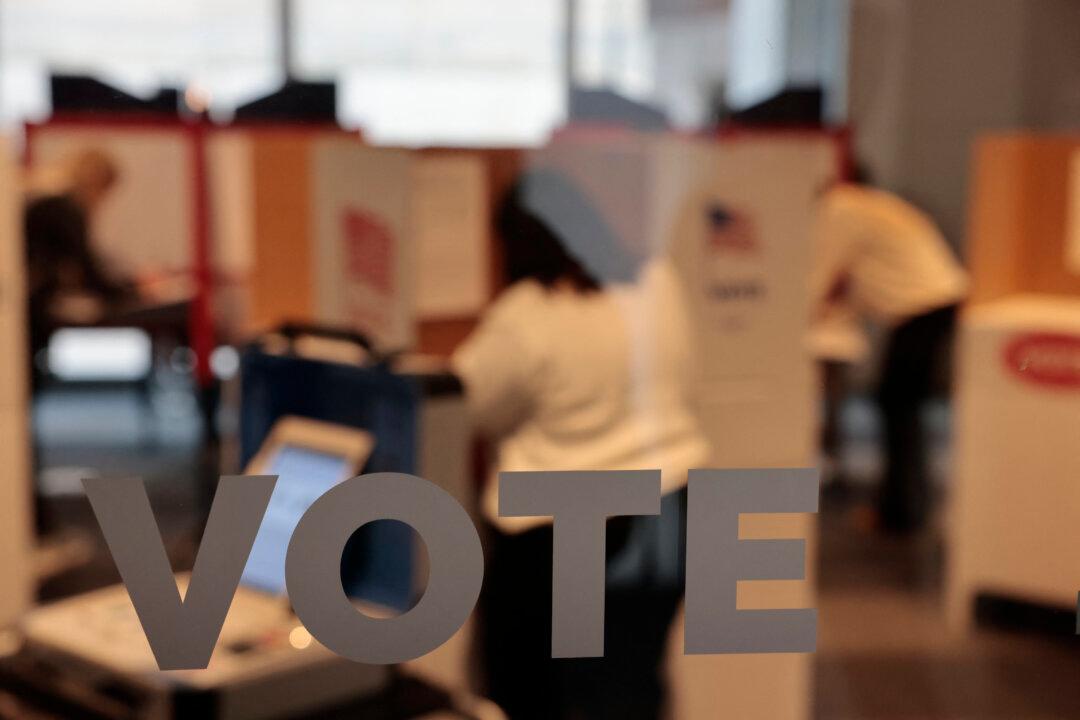U.S. Secretary of Defense Pete Hegseth arrived in Singapore on May 30, greeting his counterparts from Southeast Asian nations ahead of a defense summit for which China has opted not to send its defense minister this year.
“The United States is committed to working with our allies and partners to deter aggression by communist China in the Indo-Pacific. And we’re doing this in particular, re-establishing deterrence, through strength by standing shoulder to shoulder with you. We will unite against those who threaten a free and open Indo-Pacific,” he told Association of Southeast Asian Nations (ASEAN) defense ministers and senior defense officials at a meeting before the summit began.
Hegseth said allies were a “key part” to maintaining stability in the region, and reiterated a commitment made by U.S. Navy Admiral Samuel Paparo to joint drills with Indo-Pacific partners.
“A key part of our success will be empowering allies and partners, like all of you, to even better defend your territory and to ensure peace and security in this region. That is what we want, that’s our overarching message here—we seek, and we want peace and security and stability,” he said.
“These activities help professionalize your forces and ours and increase our inter-operability as we continue to face pressing security challenges in Southeast Asia. The United States is committed to working with you to tackle those challenges, by working together on a basis of mutual interest and mutual trust.”
Philippines Secretary of Defense Gilbert Teodoro told reporters the pre-summit meeting had been a success.
“Secretary Hegseth made a great impact, I can feel it, with our counterparts here, and it is proof of a commitment of the Trump administration to engage in ASEAN and the Indo-Pacific,” Teodoro said. “Of course, we will continue to enhance our bilateral and multilateral relationships all with the vision of a free and open Indo-Pacific and of course our shared interest in upholding a rules-based international order.”
Hegseth also met with Australian Defense Minister Richard Marles, and said their partnership was as “strong and robust as it’s ever been.”
Marles said in an Australian Broadcasting Corporation television interview after the meeting that they have discussed Australia increasing defense spending.
Marles and Hegseth had met in Washington in March to discuss the Australia, UK, and the United States (AUKUS) trilateral nuclear submarine agreement, in which Australia will pay $2 billion to the United States by the end of the year to go toward building out shipyards. This is part of Australia’s biggest defense spending project, which will include buying three Virginia-class submarines starting in 2032.
“AUKUS is happening and we talked about the need to maintain the momentum,” he said. “We want to be seeing a significant increase in the production and sustainment rate, the availability of Virginia class submarines for the United States fleet.”
Marles said the United States’ position has been clear that Australia should increase defense spending, but they did not discuss a number in the meeting.
Australia’s Prime Minister Anthony Albanese had said on May 29 that they would increase defense spending to 2.4 percent.
Notably absent from the summit was China’s defense minister Dong Jun, as China had said it would send a delegation from the People’s Liberation Army National Defense University instead.
Last year’s event resulted in a bilateral meeting between Dong and then-U.S. Defense Secretary Lloyd Austin.
On May 27, Malaysia hosted the second ASEAN-Gulf Cooperation Council (GCC) Summit, which this year was joined by China and dubbed the inaugural ASEAN-GCC-China Summit. Chinese regime officials stood with ASEAN heads of state and executives to jointly issue a statement that no partner nation should enter into trade agreements that hurt other members. At the same time, many of these nations are meeting with Washington to set trade deals, trying to balance Chinese investment and U.S. buyers.







